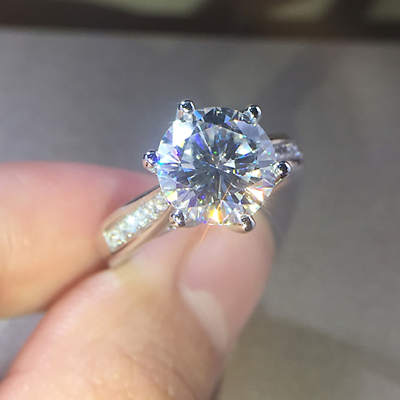
As consumers become increasingly mindful of environmental and ethical issues, the demand for sustainable and ethical choices in all areas of life has grown. This shift is particularly evident in the jewelry industry, especially when it comes to purchasing an engagement ring. Couples are no longer solely focused on the sparkle and size of the stone; they also want to ensure that their symbol of love reflects their values. As a result, the future of engagement rings is heading in a direction where sustainability and ethics are of utmost importance.
The Rise of Ethical Diamonds
One of the key changes in the engagement ring market is the growing popularity of ethical diamonds. Traditionally, many diamonds were mined in conditions that involved human rights abuses and environmental degradation. This has led to increased scrutiny over the sourcing of diamonds, with consumers now favoring diamonds that are ethically mined or laboratory-grown. Ethical diamonds, sometimes referred to as conflict-free diamonds, are sourced from mines that adhere to strict labor, environmental, and safety regulations, ensuring that workers are treated fairly and that the surrounding environment is preserved.
Lab-grown diamonds are becoming an increasingly popular alternative. These diamonds are created in a controlled environment and have the same physical, chemical, and optical properties as mined diamonds. The advantage of lab-grown diamonds is that they eliminate the environmental and ethical concerns associated with traditional mining. With lower carbon footprints and transparent supply chains, these diamonds are a sustainable choice for future generations.
Eco-Friendly Materials and Practices
In addition to ethical diamonds, many jewelers are embracing sustainable materials and practices when creating engagement rings. Recycling metals such as gold and platinum is one of the most significant trends. Mining precious metals is resource-intensive and can lead to environmental harm. By using recycled metals, jewelers can reduce the demand for new mining and minimize their environmental impact.
Fairmined and Fairtrade certified metals are also gaining popularity in the market. These certifications ensure that the metals have been responsibly sourced and that the miners involved in the extraction process receive fair wages and work under safe conditions. By choosing engagement rings made with Fairtrade or Fairmined metals, couples can support ethical practices and contribute to positive social and environmental impacts.
Transparency in the Supply Chain
Transparency is becoming a non-negotiable factor in the future of engagement rings. Consumers want to know where their rings come from, who made them, and the impact the production has on the environment and local communities. To address this, many jewelers are adopting blockchain technology to track and verify the entire supply chain of a ring, from the origin of the diamond to the final crafting process. This technology allows buyers to trace the history of their engagement ring and ensure that it aligns with their ethical values.
In addition to technological innovations, some companies are taking a more hands-on approach by working directly with small-scale mining communities. These partnerships help improve the livelihoods of miners and promote responsible mining practices. This way, consumers can feel confident that their ring has been crafted with the utmost respect for people and the planet.
The Future of Ethical Engagement Rings
As awareness of sustainability and ethics continues to grow, the engagement ring industry is poised to undergo further transformation. Companies that prioritize transparency, ethical sourcing, and eco-friendly practices are likely to thrive in the coming years. Consumers will increasingly expect jewelers to provide detailed information about the sourcing of their diamonds and metals, as well as the environmental and social impact of the entire production process.
Moreover, custom engagement rings made from sustainable materials are expected to rise in popularity. As more people seek personalized designs that reflect their unique love stories, sustainability will become a key factor in the decision-making process. Whether it’s through the use of recycled metals, lab-grown diamonds, or ethically sourced gemstones, the future of engagement rings will prioritize sustainability without compromising on beauty or craftsmanship.
Conclusion
In conclusion, sustainability and ethics are shaping the future of engagement rings. From lab-grown diamonds to recycled metals and transparent supply chains, consumers are demanding more responsible choices. As this trend grows, engagement rings will become not only a symbol of love but also a representation of the values and ethical commitments of the couple. This future of mindful consumption ensures that love is celebrated with a ring that is as kind to the planet as it is beautiful.
